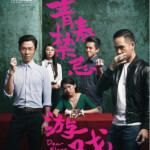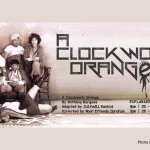“And this our life, exempt from public haunt…”
Reviewer: Idelle Yee
Performance: 20 February 2019
Lasalle’s As You Like It can, perhaps, be seen as an attempt to Singaporean-ise the work of a dead, white, male playwright from Britain who lived almost 500 years ago. The audience is informed in the programme booklet that the production is set in Singapore and Malaysia in 1965. Director Michael Earley writes that this was “just as Singapore is about to be exiled from the Malayan Union”, which is as blatant a shout-out to facile patriotism as anything.
However, a quick fact check reveals that the Malayan Union ceased to exist in 1948, replaced by the Federation of Malaya. Now this may seem an impertinent quibble, but amidst recent discussions concerning the long-perpetuated hero myth of Stamford Raffles, this factual misstep begs the question: if we do not grasp firmly our own past, who will? This, too, from a production that makes the claim of “celebrat[ing] a crucial episode in Singapore’s bicentennial history”.
Intercultural Shakespeare is hardly simplistic. For one thing, should these productions reflect the culture of Britain, or that of their own?
In this instance, it appears to be the latter – but unflatteringly so. Singapore as a backdrop has no impact on the storyline whatsoever, other than some “ethnic costumes” reminiscent of Racial Harmony Day celebrations in local primary schools. In fact, Singapore is literally a backdrop – it is, varyingly, tropical leaves and batik prints, projected on a screen. This production is seemingly quite content playing Singapore as a glossy surface onto which white-man Shakespeare can slide on and off. We must ask – what does this say about us and how we see our own culture?
A particularly unsettling directorial decision is to play Singaporean-accented English as lower-class, with the “country folk” speaking in Singlish so exaggerated it is demeaning to Singaporeans who speak with this accent to varying degrees on an everyday basis. The upper-class characters also switch to Singlish in conversation with the “country folk”, as if to get on their level.
Disturbingly, it seems that the whole accent is consistently played for laughs – only, to most of the cast and the audience, it is our accent, and it is us who are being played for laughs. That some cast members are clearly more comfortable speaking this staged variant of Singlish than whatever quasi-Anglophone accent they are effortfully imitating adds an unwelcome element of tragedy to a Shakespearean comedy.
Thankfully, the all-student cast is committed and charming. Hilary Armstrong’s Rosalind has a delightful vivacity and the energy to carry the play through its forest daydream of lusty aspiration; Steffi Ooi’s Celia plays off her exuberance with flair. Miso Choi’s Jaques is a cynical riot. Amiens (Ilina Hattangady) and guitarist (Karl Luis)’s music offers welcome reminiscent of a campfire, an invitation to come and sit alongside in this Arden Forest.
The set is simple but effective. When enlarged paper cranes descend from above, a delighted flutter ripples through the audience. It is make-belief with the workings of its conceit exposed for all to see, but it awakens something within – a childlike wonder at the magic of a simple toy.
It is this wonder that is captured close to the curtain call, when all the characters, having had more weddings and happiness than fate should allow, sing and dance on stage. Suddenly the division between play and reality blurs: we see not only the characters but also the actors, in the blindingly bright, achingly hopeful energy of youthful possibility. May they – and us, too – find new ways to challenge the local play to speak honestly and resonate ever more truly within ourselves.
Do you have an opinion or comment about this post? Email us at info@centre42.sg.
ABOUT THE PRODUCTION
AS YOU LIKE IT by Lasalle
20 – 23 February 2019
The Singapore Airlines Theatre
ABOUT THE REVIEWER
Idelle is about to graduate from the National University of Singapore with a major in English Literature and a minor in Theatre Studies. She believes very much in the importance of reviewing as a tool for advocacy and education, to journey alongside local practitioners and audience members alike in forging a more thoughtful, sensitive arts community.





